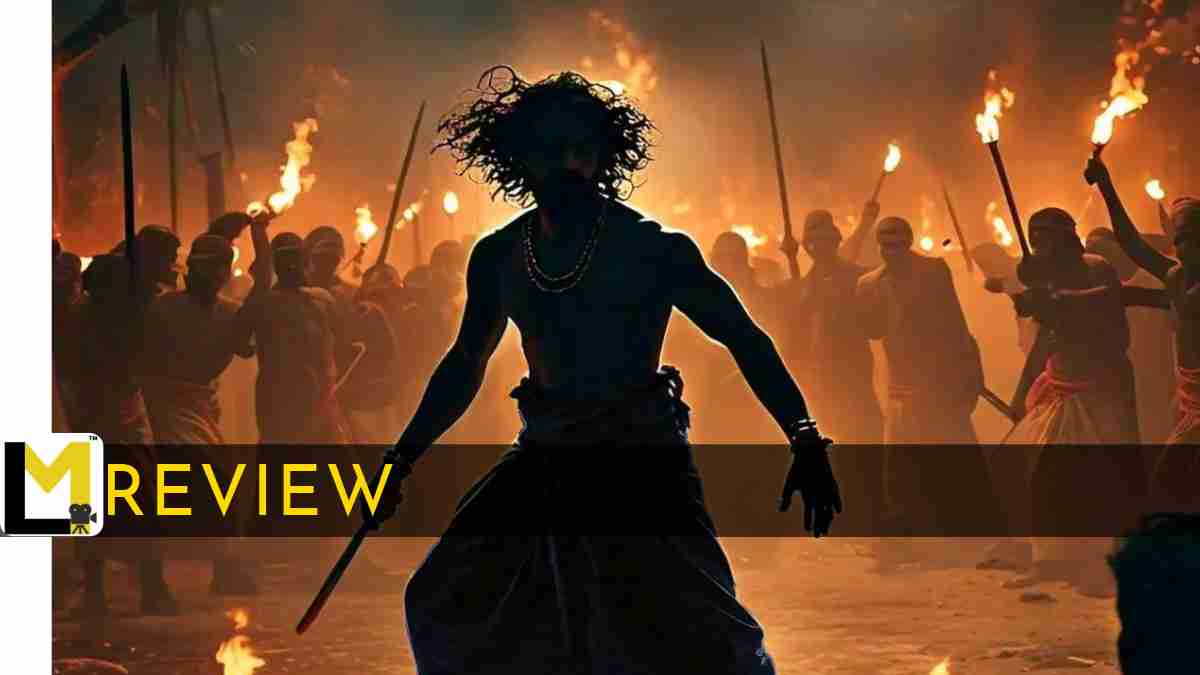ARM, aka Ajayante Randam Moshanam, is one movie that has an evident earnest effort behind it. Even though it has Tovino Thomas in a triple role, the movie is not really designed as a star vehicle. I remember when Malaikottai Vaalibhan was released, the makers had to tell the audience they should view it as a bedtime story. The good thing about ARM. is that they don’t need that disclaimer, and a few minutes into the film, debutant Jithin Laal takes you to that zone where you will be viewing it from a bedtime story perspective. The lack of goosebumps moments is definitely a limiting factor for the movie that is coming out as a festival release. But the structure of the screenplay, along with the placement of caste politics, makes it an appreciable effort with pardonable flaws.
The story is set against the backdrop of this village named Haripuram, and our hero Ajayan is this young guy who earns a living by doing electrical and plumping works and taking tuition for kids. The village and its temple have a history where they believe that the idol in that temple has the energy to bring prosperity. Ajayan’s ancestral history is not that great, as his grandfather Maniyan was a notorious thief. What we see in Ajayante Randam Moshanam is a situation where Ajayan finds himself getting blamed for his grandfather’s personality.
SPOILER ALERT! There is a layer of satiric humor in the story idea of the film. The authenticity of the idol they are worshipping is a matter of twists and turns in the film, and the narrative subtly mocks the idea of the higher caste privilege of having access to the idols. At its core, the movie is about a revolt. By the end of the film, what we are seeing is the restoration of social justice. These layers are underneath this story that looks more like folklore. Despite not having too many elevating sequences, what makes the movie engaging for its runtime is the emphasis on making it an eventful story.
There are layers in the script by Sujith Nambiar that don’t make ARM a shallow story. But from a scale perspective, it is devoid of a signature moment. The way Kunjikkelu kills an enemy in the opening of the movie is, in a way, repeated in the film’s finale, but if you look at it, the wow factor is missing. While the character arcs and certain moments, like the moment, where Ajayan says his mom entering the temple itself was a great achievement, etc., have a soulfulness, you would feel that such moments needed an elevated landing than what we see now.
On the technical front, the movie has certain achievements that are really commendable. For instance, how they have used visual effects and CGI for world-building is somewhat smart. They are not using any shots to make the movie look like a showreel of the visual effects company. The production design looks solid, and the CGI blends neatly with it. Jomon T John has handled the cinematography, and the style factor is definitely there, as he gives a distinctive look to the portions of each character. The editing is also slick, and the pacing is fine. The 3D part of the movie is done fairly neatly, as the priority is on giving depth to the visuals. But there are coloring inconsistencies, and some of the visual gimmicks can be forgiven since the makers have to keep in mind the fact that kids are also watching this film.
Tovino Thomas has put his heart and soul into the movie to be Ajayan, Kunjikkelu, and Maniyan. While Kunjikkelu is only there for a smaller part of the film, there is definitely grace in his portrayal of that character. Ajayan is a sensitive and vulnerable character who has a lot of things at stake. It is a character that is in the zone of Tovino, and even though the tanning looked artificial, the performance was fine. The reason why I liked Maniyan in terms of performance is because it sort of shows the improvement in Tovino as an actor. In Kalki, when he tried to do a mass-appealing hero, the attitude he tried to maintain looked so artificial and somewhat comical. But here, he captured the eccentricity of this character with great conviction. The dialect part was also done neatly.
Krithi Shetty is paired with Ajayan, and the duo has a palpable chemistry. The same can be said about the casting of Surabhi Lakshmi, as Manikyam, opposite Maniyan. Basil Joseph is a comic relief, and at the same time, he plays an extensive character in the movie. Harish Uthaman was fine as one of the antagonists, and his Malayalam accent suited the character perfectly. Nisthar Sait was in his element and looked convincing. The elaborate cast of the film has several other names like Jagadish, Rohini, Sanju Sivaram, Aishwarya Rajesh, Sudheesh, Aju Varghese, etc.
The lack of gimmicks to make it overtly commercial is like a blessing and curse to ARM, aka Ajayante Randam Moshanam. There are areas where you would appreciate the grounded treatment, but at the same time, the steadiness of the graph would make you want to see some spike at pivotal moments. On the whole, A. R. M is an honest and ambitious movie that needs a bit more refinement.
The structure of the screenplay, along with the placement of caste politics, makes it an appreciable effort with pardonable flaws.
Green: Recommended Content
Orange: The In-Between Ones
Red: Not Recommended


